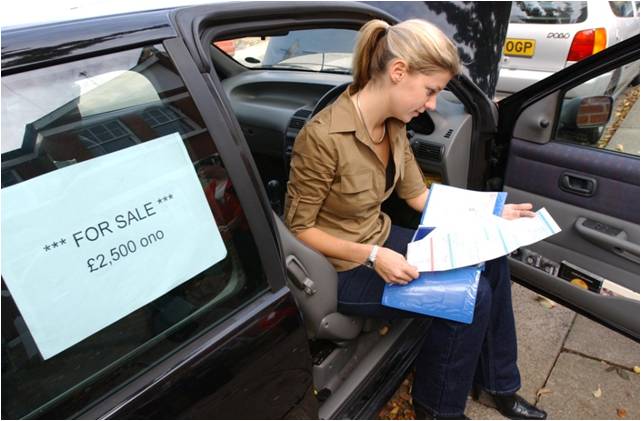What is car depreciation?
When it comes to knowing whether a car accident will reduce your car’s resale value, it’s important to first understand car depreciation on a more general level.
Car depreciation is the decline in a car’s value over time. It is a natural and expected occurrence as you use it over time and its internal components experience wear and tear. One of the biggest factors relating to a car’s depreciation is its condition. Well-maintained, regularly serviced cars that are kept in good condition are likely to retain their value better than neglected cars suffering from damage like dents, scratches, or mechanical issues.
The impact of accidents on car value
It may be obvious to say, but accidents do unfortunately have a significant impact on a car’s resale value, and the reasons behind this are two-fold: Perception and repair costs.
Perception
Accidents tend to create a negative perception amongst potential buyers due to concerns about reliability, safety, and possible hidden damage. This can lead to a decreased demand for the car, negatively impacting its value.
Repair costs
The cost of repairing accident damage can reduce a car’s worth. Minor accidents that result in cosmetic damage - think dents or scratches - generally have a milder impact on a car’s value. On the other hand, major accidents involving structural damage, frame repairs, or airbag deployments can lead to extensive repair costs and substantially decreased value.
Some figures put accident depreciation at around 20% lower than pre-accident value, highlighting just how much an accident can cost a driver in the long run. Even a minor accident may knock 10% off your car’s initial value.


Consider other factors than just the accident
While accident history does play a vital role in your car’s future value, it isn’t everything. Several other factors influence a car’s worth, all of which should be considered if you’re going to sell your car.
1. Maintenance history
A well-maintained car that has enjoyed regular servicing and documented records indicates that the owner has taken good care of it. It suggests that any necessary repairs have been promptly addressed, reducing the risk of future issues and enhancing the overall value.
2. Service records
Oil changes, tyre rotations, and major repairs provide additional insights into a car’s upkeep. They show responsible ownership and a commitment to maintaining a car’s performance and reliability.
3. Market demand
Popular makes and models, regardless of their accident history, tend to retain their value better due to higher demand. On the other hand, niche or less sought-after cars may see more significant depreciation.
Understanding these factors that sit outside of a car’s accident history will help you understand your car’s value more holistically so you have a better idea once it comes to selling.
The classification of accident damaged cars
Insurance companies in the UK grade the severity of a car accident in several categories - A, B, S, and N - based on the condition of the car.
Category A
If your car has been involved in a collision and is deemed Category A, then it is heavily damaged and beyond repair.
Category B
This is a category of cars that is heavily damaged and beyond repair, though some parts may be saved, recycled or sold if in working or easily repairable condition. However, the body shell can’t be salvaged and must be scrapped.
Category S
Also known as ‘structural cars’, this is where the structural frames of the car have been damaged in an accident, but the car can be repaired and resold at a depreciated value.
Category N
A Category N car hasn’t received any of its damage to the structural frame in an accident, though other damage could compromise the car’s safety.

So, does an accident reduce a car’s value?
There’s no nice way to put it, but yes, an accident involving your car will have a substantial impact on your car’s resale value, especially if it is a major accident that has resulted in structural or frame damage. The reduction in value will be less if the accident has only brought about minor cosmetic damage, but expect at least 10% of the car’s initial value, all the way up to 20% in more serious cases.
With that being said, accident history isn’t the only thing that people will look at when buying your car from you. Maintenance history, service records, and overall market demands also play their part in what you get for your car overall.
At Sell 2 Swansway, we understand the importance of transparency when buying your car from you. That’s why we’ve revolutionised the car-selling process by putting it entirely in your hands and letting you do it straight from your phone.
If your car has been involved in an accident and you want to sell it, we will be able to take that into account thanks to our handy car-valuing process. Simply follow the steps here and within minutes you’ll be able to take pictures of your car so that we can see the condition of your car. We will then use these images - as well as current market trends - to give you the fairest value for your car.
If you want to sell your car quickly and hassle-free, begin your valuation now and enjoy free collection AND your money straight into your account once we take it off you.
Sell your car the Swansway way today!